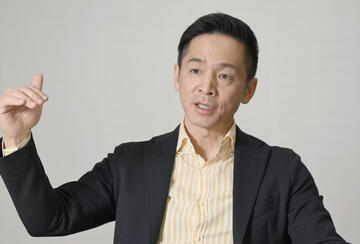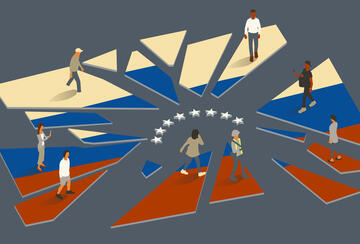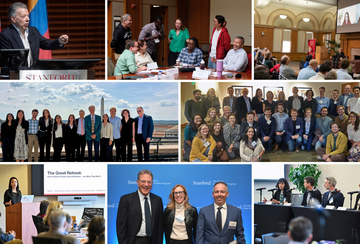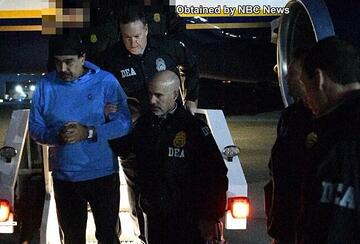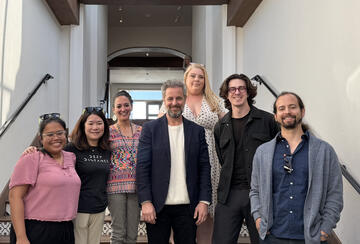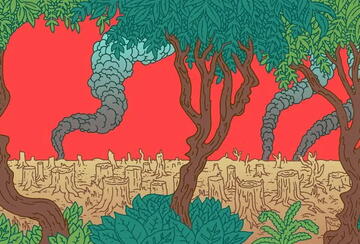News
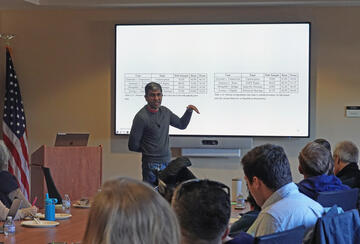
The GSB's Neil Malhotra examines how ideological distance from voters shapes approval, legitimacy, and political response.
As you plan your travel for 2026, consider these journeys available through Stanford Travel/Study.
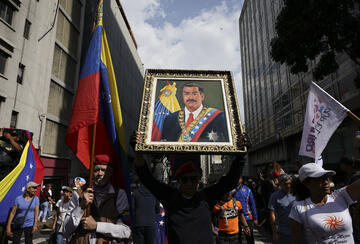
A Democracy Action Lab panel weighed competing scenarios for Venezuela’s political future amid elite continuity, economic crisis, and international intervention.
In a special feature story, Japanese news publisher Nikkei spotlights the life and career of Stanford sociologist Kiyoteru Tsutsui.
“The action violated international law,” said Tom Dannenbaum, Frank Stanton professor of nuclear security.
Mosbacher Director Kathryn Stoner reflects on the Center's 2025 activities and accomplishments and looks ahead toward the new year.
In this Health Affairs study, Stanford researchers examine the promises of efficiency and risks of supercharged flaws in the race to use artificial intelligence in health care.
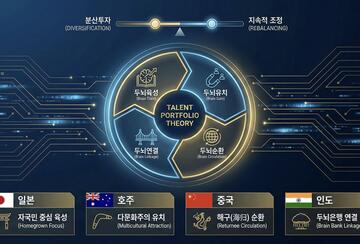
Without Securing Talent, Korea Has No Future
Without Securing Talent, Korea Has No Future
To survive in the global competition for talent while facing the AI era, low fertility, and the crisis of a new brain drain, South Korea must comprehensively review and continuously adjust its talent strategy through a portfolio approach.
"Serious legal objections to Maduro's regime do not eliminate the need for a legal basis to use military force in Venezuela," said Tom Dannenbaum, Frank Stanton professor of nuclear security.
Maya Rossin-Slater, PhD, writes in this Boston Globe editorial that long after the headlines about the Brown University mass shooting fade, the survivors face decades of trauma that could impact everything from their mental health to their livelihoods.
The New England Journal Medicine highlights the research of Adrienne Sabety, PhD, on how the assistant professor of health policy measured the loss of primary care physicians.
A Look Back at 2025
As we close out 2025, the Tech Impact and Policy (TIP) Center at Stanford University is proud to reflect on a year of groundbreaking research and impactful events. Here are some of the year’s key highlights:
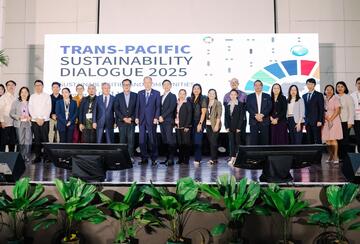
Held in Manila, Philippines, the fourth annual Trans-Pacific Sustainability Dialogue generated cross-sectoral insights on complex issues faced by cities and human settlements across the region, from housing and mobility to disaster resilience.
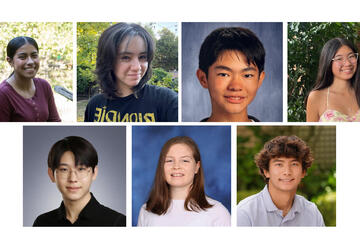
Reflections of seven students on the educational website “What Does It Mean to Be an American?”
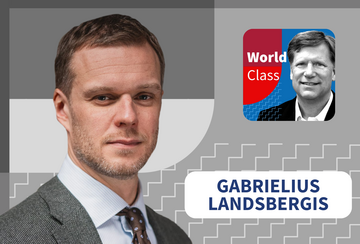
On the World Class podcast, Gabrielius Landsbergis shares what the war in Ukraine has looked and felt like from a European perspective, and what he believes must be done to support Ukraine for the long-term.
The Stanford Human Trafficking Data Lab, in partnership with Brazil’s Federal Labor Prosecution Office (FLPO), is developing Chain-Link, a new data-driven technical tool to map exploitative supply chains.
A long-running collaboration between CISAC co-director Scott Sagan and Dartmouth professor Ben Valentino offers new insight into how real-world information environments shape nuclear decision-making.
In this timely study, SHP's Lee Sanders reveals that Medicaid discharges accounted for $119.5 billion—more than half of all pediatric hospital discharges nationwide—a figure the researchers called “striking.”

High school student Erin Tsutsui, an alumna of Stanford e-Entrepreneurship Japan, reflects on forging friendships across Japan, embracing new world perspectives through thoughtful discussion, and transforming family heritage into a youth-led peace initiative via empathy and social innovation.
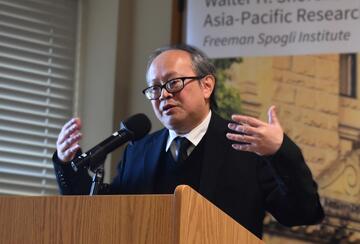
Speaking just one day after deadly clashes between Thailand and Cambodia reignited along their shared border, Thai Ambassador Dr. Suriya Chindawongse joined APARC’s Southeast Asia Program to explain how a fragile truce, shifting U.S. tariffs, emerging semiconductor opportunities, and a surge in online scam syndicates are shaping ASEAN’s future.
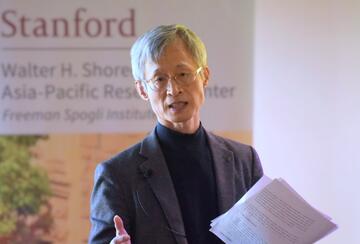
Byongjin Ahn offers an insider’s look at how President Lee Jae-myung’s early leadership is reshaping South Korea’s political order, revealing the tensions between pragmatic governance, fragile liberal norms, and the country’s emerging AI-driven strategic ambitions.
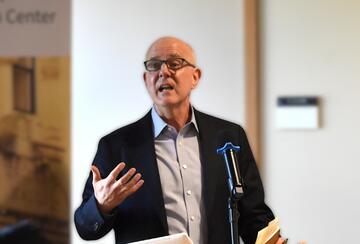
Eurasia Group’s David Meale, a former Deputy Chief of Mission at the U.S. Embassy in Beijing, reflects on the last 30 years and describes how the two economic superpowers can maintain an uneasy coexistence.
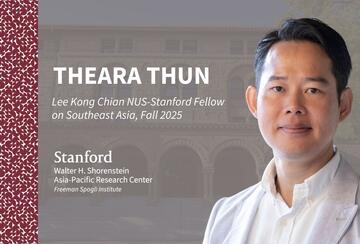
Theara Thun, APARC’s Lee Kong Chian NUS-Stanford Fellow on Southeast Asia, investigates how educational systems emerged in post-Khmer Rouge Cambodia within the broader context of national recovery and development.
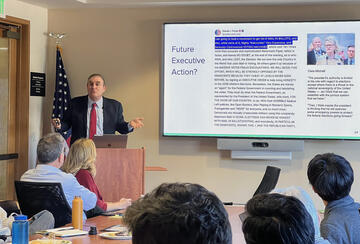
In a CDDRL research seminar, Nate Persily, the James B. McClatchy Professor of Law at Stanford Law School and Senior Fellow at the Freeman Spogli Institute, discussed revelations from the 2024 election and how the 2024 election can forecast the upcoming 2026 midterm election cycle.






